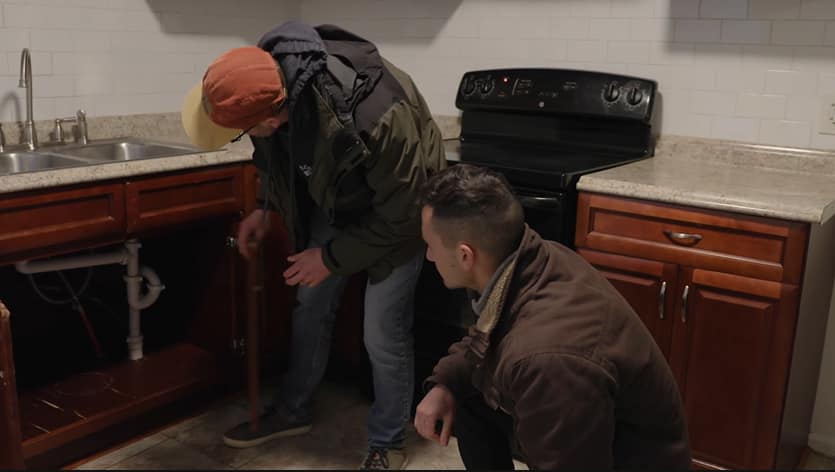3 Common Mistakes That Veterans Make When Investing in Real Estate

When you ask a veteran about their real estate portfolio, you may generally hear ambiguous answers. Issues like homelessness, sadly, occur at shocking rates with veterans. In 2025 alone, there are around 32,000 homeless veterans in the United States, and that’s not something to be proud of.
We at Brotherly Love Real Estate thought of researching the correlation between veterans owning real estate. We found out that most of them realized too late that the skills they developed overseas in combat do not carry over. Thankfully, there is more awareness about this today, and service members are starting to plan and invest ahead of time. Real estate is one such area of investment that holds both success stories and cautionary tales.
It’s easy to be drawn in by the allure of profits and financial security. However, it’s equally easy to make mistakes if you don’t know what you are doing. The good news is that these mistakes are often avoidable.
What are the 3 Common Mistakes Veterans Make When Investing in Real Estate?
With veterans, the process of real estate investing is not as streamlined as it would be with me or you. They are in pressing situations most of the time during their service, so one cannot expect them to be at the top of their “regular civilian lifestyle”.
During our research, we interviewed some veterans who had made similar mistakes when investing in real estate. This list included one of my veteran friends who gave a first-hand account of her miscalculation.
1) Not Doing Their Due Diligence

According to my friend Alana, her misstep was due diligence. She was about to be deployed soon and, in a rush, invested in a house that did not bring the anticipated financial gain.
“I did not realize that investing in real estate would mean months of due diligence. I simply looked into the house, and the area seemed proper”. Had I known before, due diligence would have been at the top of my priority list”.
Due diligence is a critical step in the real estate investment process. Unfortunately, most veterans can be hasty when investing, especially from abroad. Investing from a distance already comes with its own set of challenges.
You see, due diligence involves understanding not just the purchase price but also other things.
– Hidden costs.
– Property taxes.
– Renovation expenses.
– Other fees.
These can add up, and you could find yourself paying thousands of dollars every year.
Alana meant for the property to be a rental. But, in a rush, she chose not to research the market or the tenant mix. She assumed that there was a certain level of demand in the area that would fetch her a recurring income while she was away. But as you might have realized, that was her mistake. She ended up with a property that remained empty for months, and ended up paying the void costs.
2) Neglecting Property Management
Another big mistake is neglecting property management. Property management is tough for people residing in the same neighborhood, so imagine having to maintain the property from overseas.
Veterans who invest from abroad can often underestimate how complicated property management is. They might believe that they can handle logistics over the phone or via email, but it’s not that simple. People can break into a home and vandalize the property. Some veterans are forced to learn the laws surrounding illegal squatters if someone breaks into their home.
Even minor issues tend to create unhappy tenants and complaints. Before you know it, your property has lost value, and you start to regret your decision.
Some veterans might have a unique perspective on leadership and responsibility due to their military background. This can create an opposite situation where, instead of neglecting the property, they micromanage it too much. This could drive away reliable tenants.
If you aren’t sure you can handle it well, delegate the responsibility to management professionals. Good property management begins early and can almost feel like another job. If you are investing in real estate for passive income, do yourself a favor and get a property manager.
3) Emotional Decision Making

Humans are tempted to make decisions based on emotions. This isn’t a fault that’s exclusive to certain groups of people. That said, veterans are more prone to this.
For instance, nostalgia can often cause you to overvalue certain properties. We generally see this from veterans who wish to invest in properties in their hometowns. The sentimental value can cause veterans to go against their better judgment and the realities of the real estate market. Similarly, they may have emotional ties to certain places because friends and other veterans have homes in a particular locality.
One of the veterans we interviewed said, “I wish logic had prevailed”.
He found a property near where he grew up and invested while stationed overseas. What he failed to realize was that the area had become dilapidated and the development of a nearby satellite neighborhood had overshadowed any future redevelopment.
For those veterans investing from abroad, the fear of missing out can influence decision-making.
Conclusion
Remember that while the allure of real estate is undeniable, it’s also a path that requires careful planning. You’re not just buying properties. Someone buying multiple homes is investing in a dream and in their financial future. Educate yourself about the local markets.
We can’t stress enough how essential it is to know someone who understands the heartbeat of a neighborhood. Someone who understands the rhythm of its rental market and the potential it holds for growth.
Investing isn’t a path you need to navigate alone. Yes, it can feel risky to talk to people because of all the stories you read about people getting scammed. However, there are still many trustworthy people you can rely on.
Communicate with a reliable homebuying company to avoid making these common mistakes when investing in real estate.
